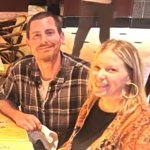In several weeks the Jewish people will be celebrating the Festival of Passover. The Sabbath before Passover is called “the Great Sabbath,” or in Hebrew, Shabbat HaGadol.
The Bible indicates that the freedom of the Israelites was not a gift bestowed from God. Rather it required a special effort from the people themselves.
The Israelites had to demonstrate in a tangible way that they were ready to be free and that they were actively participating in an act of self-redemption. The readiness test was the ritual that they were commanded to perform on the eve of their departure from Egypt.
All Israelites were asked to prepare a lamb whose blood was to be smeared on each door post. In seeing this sign, the Angel of Death would know that the house was occupied by an Israelite and would Passover it when he came to slay the firstborn.
It was a public proclamation that within that home there resided Jewish people who had prepared themselves for liberation. Furthermore, the lamb was a sacred animal to the Egyptians, and thus to fulfill this command undoubtedly took great courage on the part of the Israelites.
The Bible specifies that the lamb’s blood was applied in three places, on the lintel, and on the two doorposts. One rabbinic explanation is that the three places represent the three patriarchs—Abraham, Isaac, and Jacob. The Israelites used the symbol of their three ancestors as an indication of their membership in a group that was loyal to the God of their ancestors.
From this ceremony of the smearing of the lamb’s blood emerges the teaching that the door proclaims the persons who live behind it. It becomes symbolic of the family that resides behind that door.
There is a story of a neighborhood in Haifa, a city in northern Israel, in which cooperative apartments were built, each without a door. Each owner was required to build his own unique door and install it himself.
The door was meant to represent the individuality of the family that occupied the apartment.
What does your door say to your friends and family? The Israelites had to make their doors the symbols of loyalty to their faith. What does your door tell the world? Perhaps it can proclaim how hospitable you are, especially if you have a welcome mat below. Passover reminds us to give thought to the kind of door which graces your home.
When Jews begin the Passover meal, and before they take the first bite of their food there is a proclamation which they recite that states: “Let all who are hungry come in and eat.”
Hospitality to strangers is a time-honored tradition. No Passover meal can be held in a home with a door that is closed to the needs of one’s neighbors and the world.
The door of a Jewish home also proclaims one’s religious attitude. Traditional Jewish doors are marked on the doorpost with a mezuzah, a small receptacle in which is inscribed in Hebrew on parchment the great words “Hear O Israel, the Lord is our God, the Lord is One,” and that a Jew must love the Lord with all one’s heart, soul, and might.
Many Jews have a custom of kissing the mezuzah when they pass it, generally by touching it with a fingertip and then kissing the finger. In this way, they are reminded of how they should act in their home and of the high level of behavior they are expected to maintain wherever they go.
The Great Sabbath teaches that the slaves in Egypt could not be free until they did something to indicate their readiness for transformation. The mark on the door proclaimed in the face of much hostility that the people took their stand as members of the Israelite people.
At this season you might want to look at your door and see how it defines the kind of home in which you live. Is it a home of welcoming, charity, and hospitality? Is it a home of good values and teachings?
I hope that the Great Sabbath will inspire all of us, as it did to our ancestors, to maintain homes that will reflect an open heart and open hand. Let all who are hungry come and eat.
ED. NOTE: Rabbi Isaacs is the interim rabbi at Beth Judah Temple, Wildwood. He invites questions emailed to his website www.rabbiron.com.
North Cape May – Another shout out to Officer Bohn, the school resource officer at LCMR. I admire his hard work and devotion to the students and staff as I see him every morning and afternoon, snow, wind , sleet or…







